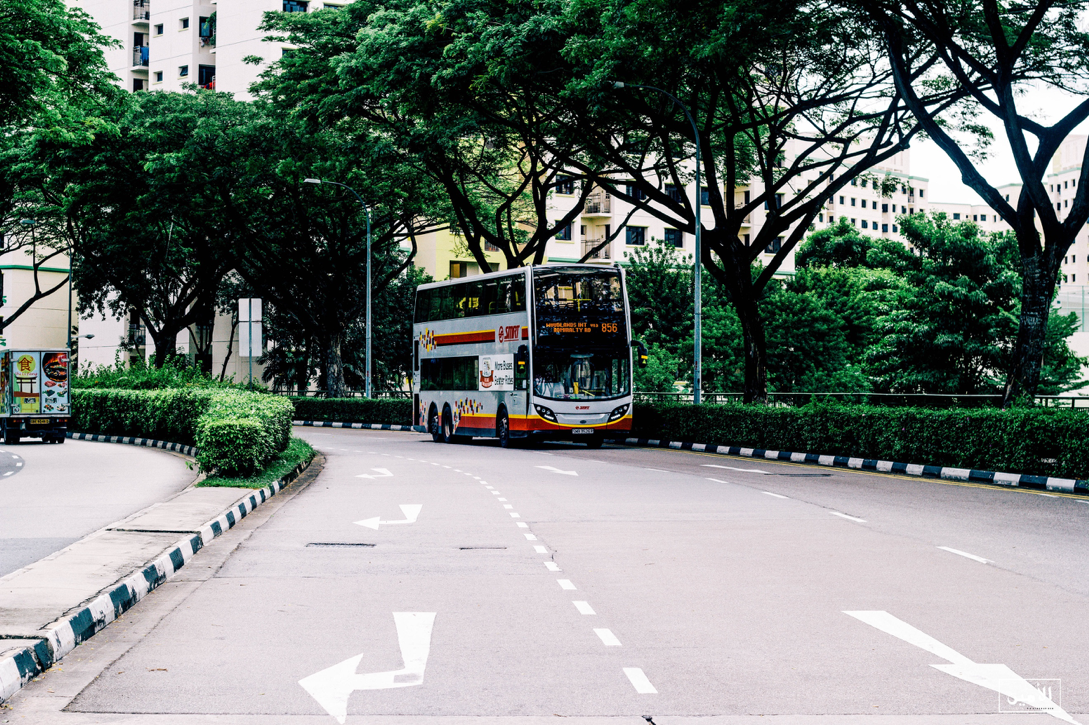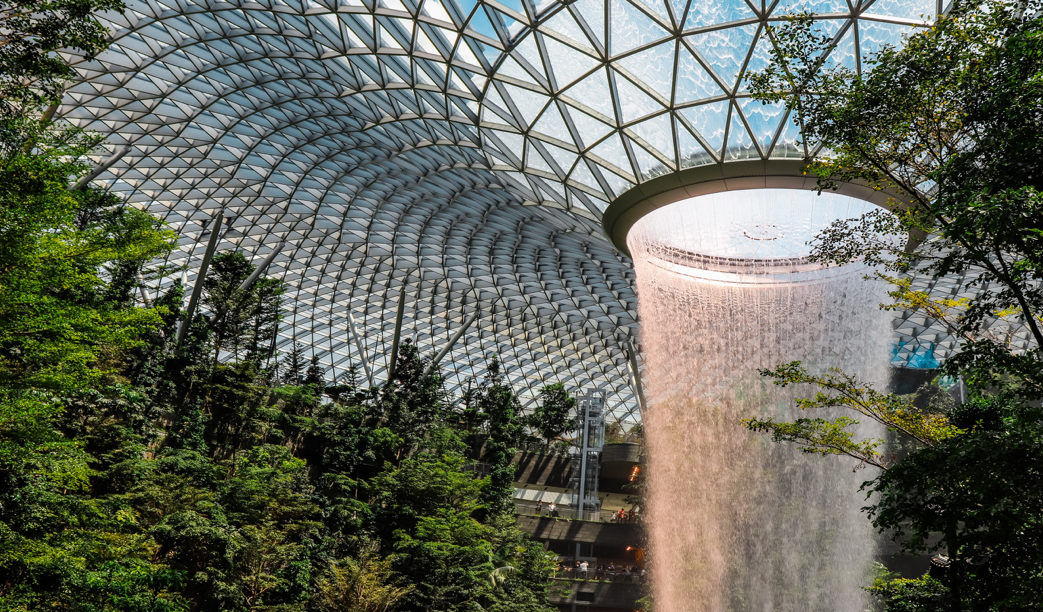Singapore is an island city-state off Southern Malaysia that is known worldwide for many different reasons. Its impeccable cleanliness, low crime rate, novel approach to preserving green space and strong business environment are just some of the benefits that make Singapore the ideal launchpad for social entrepreneurs and social innovators across the Asia-Pacific region. As the country continues to expand, it seems to go further and deeper into the mechanisms of social innovation, as numerous businesses are already creating a lasting impact on society and its core environmental, political and societal challenges.
Green Buildings
Green Buildings offer a large number of compelling benefits to a variety of stakeholders. By pushing green innovations, Singapore has structures so green that they aid in regenerating the planet. There are numerous examples of buildings in Singapore that resemble living organisms. A distinct example of green building and a symbol of Singapore and its efforts to promote greenery in the midst of the city is the ‘Supertrees’, conceived and designed by Grant Associates, with Atelier Ten providing mechanical and electrical engineering to completion. These solar-powered artificial trees, up to 50 metres tall, are found in the Bay South Garden and their trunks are vertically laced with more than 150,000 living plants. Growing layers of vegetation on artificial trunks and buildings? Has Singapore actually found a way to fight back climate change? What do you reckon?

Ethical Shopping
Over the last twenty years, there has been ongoing pressure from consumers and politicians to make a shift in ethical shopping towards greater corporate social responsibility practices by companies and corporations. Nowadays, consumers and companies should be aware of a number of ethical shopping principles covering areas such as vegetarian and vegan products, non-GM food, recycling and Fairtrade practices to be considered as necessary steps to help shape a better future for all. Singapore has a great plethora of socially conscious brands and shops striving to encourage consumers to change their shopping lifestyles that have a negative effect on the Earth and its inhabitants. For instance, Bettr Barista is Asia’s premier coffee Academy and offers professional certification courses with a social mission to aid marginalised women and youths at risk. How? By investing a portion of their proceeds in supporting higher education for youths in need. Another inspiring example of ethical shopping lies in OliveAnkara, a brand that is deeply rooted in African culture and fashion and which has a zero-waste philosophy. Every spare piece of fabric is upcycled and used to make other items. What other examples of ethical brands do you know that have sustainable causes at their core?

Food Supply Chain Transformation
Transparency in the food supply chain has entered the mainstream in recent years, as more and more shoppers care about ingredient sourcing, labelling and the impact that the manufacture and distribution of goods has on both a societal and environmental level. At present, Singapore imports approximately 90% of its food from more than 160 countries; surprisingly, less than 1% of its land is used for agriculture[1]. In particular, future fluctuations in global food supply and prices could impact on the demand for diverse food products and Singapore has already set a goal to transform its current food supply chain. In addition, Singapore plans to produce almost one-third of its food in-house by 2030, including vegetables that will be ‘cultivated in climate-controlled greenhouses under special LED lighting to maximise yields, and fish farmed at sea in contained systems to shield them against toxic algae blooms and oil spills’[2]. The agritech industry in Singapore seems to go places!

Urban Innovations
Singapore might be a tiny country that is substantially smaller than other major cities, yet it has managed to make its mark on the world through the promotion of urban innovations. Its success in becoming more sustainable and liveable is deeply rooted in the vision of Cheong Koon Hean[1], an architect responsible for reshaping Singapore’s skyline through the creation of landmark projects. Singapore has a reputation for sustainability excellence and its innovation culture enables individuals and organisations to take an active stand in powering the whole nation. A notable example of such an organisation creating positive change is SP Group, which is engaged in various initiatives to create societal impact. For instance, it has ‘established the first zero-emission building that is powered by green hydrogen in Southeast Asia’.[2] Urban farming is certainly a perfect example of urban innovation. In land-scarce Singapore, Edible Garden City is implementing a new approach to urban lifestyle, designing and conducting farming workshops for companies and schools at their premises, in addition to creating and running a farming curriculum in schools that benefits both educators and students. Are you ready to try out urban farming?

Water Systems
As water supplies continue to shrink, the world’s demand for water is likely to surge as the global population increases. In 2015, the World Resources Institute (WRI) identified thirty-three countries, among 167 nations, as those most likely to face extreme water scarcity[1]. Singapore was considered the country most vulnerable to future water stress ‘based on an index measuring competition for and depletion of surface water, such as lakes and rivers’5. The good news is that the nation saw a potential threat as an opportunity to step into the frontline to secure its water future. The country has become a hub for mutually beneficial technology collaborations and exchanges to support its own water security.5 Currently, the country is a world leader in water research with sustainable domestic supply. Singapore mainly imports its water from Malaysia[2] and its recent water innovations find the country exporting sophisticated water purification technologies[3] to Asia and beyond. The city-state is a pioneer in water technology with solutions capable of creating long-lasting change.

Urban Mobility Innovations
Urban areas are indeed complex settings characterised by the mobility of passengers and freight. Societies implement different transport technologies and infrastructures in a bid to tackle congestion, improve air quality and make their cities more accessible, safe, competitive and attractive. Singapore has long aimed for a car-lite future with low carbon emissions. A car-lite future where individuals and communities enhance their commuting experience and transport providers can adapt to the ever-changing needs of passengers’ daily routine. To date, Singapore has managed to harness new technological and institutional innovations for the purpose of creating smart urban mobility systems. Using digital technologies to enhance passengers’ experience, the nation offers accessible, safe and reliable public transport systems. From autonomous vehicles to contactless fare payments for public transport and real-time on-demand driven intelligent transport systems, Singapore is a pioneer in urban mobility services. Do you know of any other examples of ways to deal with urban mobility issues?

Age-Friendly City
Population ageing and urbanisation are two global trends that together are major forces shaping our century. While cities continue to expand, there is a growing need for more outdoor space, accessible and safe transportation, housing and health services to help meet the demands raised by older people. The World Health Organisation state that ‘the number of people aged 60 and over as a proportion of the global population will double from 11% in 2006 to 22% by 2050’.[1] As ageing is a lifelong process, Singapore aspires to become a place where seniors are able to age confidently and gracefully from a life course perspective. To achieve its goals, the country is attempting to create age-friendly neighbourhoods, with safety measures and inclusive public transportation, combined with the design and manufacture of nursing homes that facilitate easier social interactions and provide a therapeutic environment. Once you hit 60, ageing seems fun!

Smart City: A holistic approach to a thriving ecosystem
Singapore’s success in fostering innovation is strongly linked to its commitment to research and development. It views ‘smartness’ as a measure of how societies can harness technological advances in order to address current issues and challenges with new approaches at the same time as benefiting the greater good of their people. The country has become a global hub for innovators to grow their initiatives as the government has supported and enabled an ecosystem where companies, organisations, individuals, universities and top leaders in various industries are able to come together, sit at the same table and through experimentation develop new solutions to wicked challenges. The three pillars that support Singapore’s Smart Nation goals are the digital economy, digital government and digital society. All the above attributes have made the country one of the most innovative places to run your business.

Learn more at Social Innovation Academy
Check out the Social Innovation Academy – the first fully online management training programme focusing exclusively on social innovation. Subscribe to our newsletter, join our private LinkedIn group, become one of our friends or follow us on social media (LinkedIn, Twitter and Facebook). We welcome all requests for collaboration here.
[1] https://thediplomat.com/2015/09/singapores-impressive-food-security/
[2] https://www.straitstimes.com/singapore/spore-sets-30-goal-for-home-grown-food-by-2030
[3] https://en.wikipedia.org/wiki/Cheong_Koon_Hean
[4] https://www.poweringthenation.sg/home?gclid=EAIaIQobChMI3tKqu7ez5wIVSaWaCh1aFw-rEAAYASAAEgJfqfD_BwE
[5] https://www.straitstimes.com/world/united-states/spore-most-at-risk-of-facing-high-water-stress
[6] https://www.reuters.com/article/us-water-singapore-innovation/thirsty-singapore-taps-into-innovation-to-secure-its-water-future-idUSKCN1T80VU
[7] https://www.edb.gov.sg/en/news-and-events/insights/innovation/creating-a-sustainable-water-supply-for-asia.html
[8] https://www.who.int/ageing/publications/Global_age_friendly_cities_Guide_English.pdf

